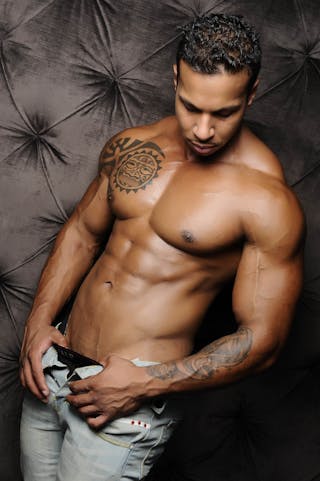Creating An Asexual Character For TV Showed Me We Have A Way To Go
Have you ever noticed how few TV shows accurately represent asexuality? It's a shame that such an important and valid sexual orientation is so often overlooked in mainstream media. While there have been some positive steps towards better representation, there's still a long way to go. It's time for TV producers to step up and include asexual characters in their shows, giving viewers a chance to see themselves reflected on screen. With more awareness and understanding, we can work towards a more inclusive and representative media landscape. Check out this link for more on this topic.
As a fan of television, I've always been drawn to shows that feature diverse and inclusive characters. However, when it comes to representation of asexuality, the landscape is still quite barren. This was made glaringly obvious to me when I recently watched a show that introduced an asexual character. While I was thrilled to see this representation, it also showed me just how far we still have to go in accurately portraying asexuality on screen.
If you're looking for reliable reviews on adult DVDs, check out this website and see for yourself why it's worth a try.
The Importance of Representation
If you're looking for a convenient and secure way to pay for your favorite adult content, check out this porn site that accepts PayPal and enjoy easy and discreet transactions.
Representation matters. It's a simple concept, but one that is often overlooked in mainstream media. When it comes to sexuality, the lack of representation can have real-world consequences for those who identify as asexual. Seeing themselves reflected on screen can help individuals feel seen and validated in a world that often doesn't understand or recognize their identity.
Check out the amazing discounts on Compton Booty at Devilish Desire!
The Introduction of an Asexual Character
I recently watched a popular TV show that introduced an asexual character. As someone who identifies as asexual myself, I was excited to see this representation on screen. However, as the storyline unfolded, I couldn't help but feel a sense of disappointment. The character's asexuality was portrayed as a punchline, with other characters making jokes and dismissive comments about their lack of interest in sex. It felt like a missed opportunity to educate and inform the audience about asexuality in a respectful and accurate way.
The Misconceptions of Asexuality
Asexuality is still widely misunderstood and misrepresented in mainstream media. The lack of understanding about asexuality often leads to harmful stereotypes and misconceptions. A common misconception is that asexual individuals are simply "broken" or "repressed," when in reality, asexuality is a valid sexual orientation that exists on a spectrum. By perpetuating these misconceptions, TV shows and movies contribute to the erasure and marginalization of asexual individuals.
The Need for Proper Representation
The introduction of an asexual character in the TV show I watched highlighted the need for proper representation of asexuality in media. It's not enough to simply include a token asexual character and call it a day. The portrayal of asexuality needs to be handled with care and sensitivity, with a focus on educating the audience and debunking harmful stereotypes.
Moving Forward
While the portrayal of asexuality in the TV show I watched was disappointing, it also served as a reminder of the work that still needs to be done. As viewers, we have the power to demand better representation from the media we consume. By speaking out and holding creators accountable, we can push for more accurate and respectful portrayals of asexuality on screen.
In Conclusion
The introduction of an asexual character in a TV show served as a stark reminder of the work that still needs to be done in accurately representing asexuality in mainstream media. As viewers, we have the power to demand better representation and push for more accurate and respectful portrayals of asexuality on screen. It's time for the media to do better in representing the diverse spectrum of human sexuality.
- https://hookup-blog.themountaintopplay.com/posts/bella-thorne-has-come-out-as-pansexual/
- https://sex-app.themountaintopplay.com/posts/samesex-couple-both-carried-baby-shared-motherhood/
- https://flirting-online.getweps.com/posts/26-sexy-christmas-gifts-for-2023/
- https://matchmaker-website.fu-direct.net/posts/three-minute-game-could-revolutionise-your-sex-life/
- https://chat.themountaintopplay.com/posts/dating-expert-and-oloni-explores-longdistance-love-for-a-week/
- https://dating.campsupernow.com/posts/lesbian-wedding-planning-advice-and-tips-samesex-lgbtq-weddings/
- https://fuck-apps.thehottieandthenottie.com/posts/our-insecurities-are-preventing-us-all-from-enjoying-sex/
- https://singles-website.themountaintopplay.com/posts/strapless-dildo-advice-and-the-best-sex-toys/
- https://dating-app.campsupernow.com/posts/monomanic-dating-what-is-monomanic-dating/
- https://flirting.timebombrecordings.com/posts/life-as-a-sexual-submissive-is-pretty-different-to-fifty-shades-of-grey/
- https://singles-chat.timebombrecordings.com/posts/the-25-best-sexy-pyjamas-to-shop-for-valentines-day-2024/
- https://dating-chat-room.ua-sex.com/posts/sexpositive-accounts-are-being-deleted-from-instagram-en-masse/
- https://find-singles.getweps.com/posts/29-best-sex-movies-ever/
- https://meet-singles.themountaintopplay.com/posts/my-best-sex-ever-was-with-his-family-in-the-same-room/
